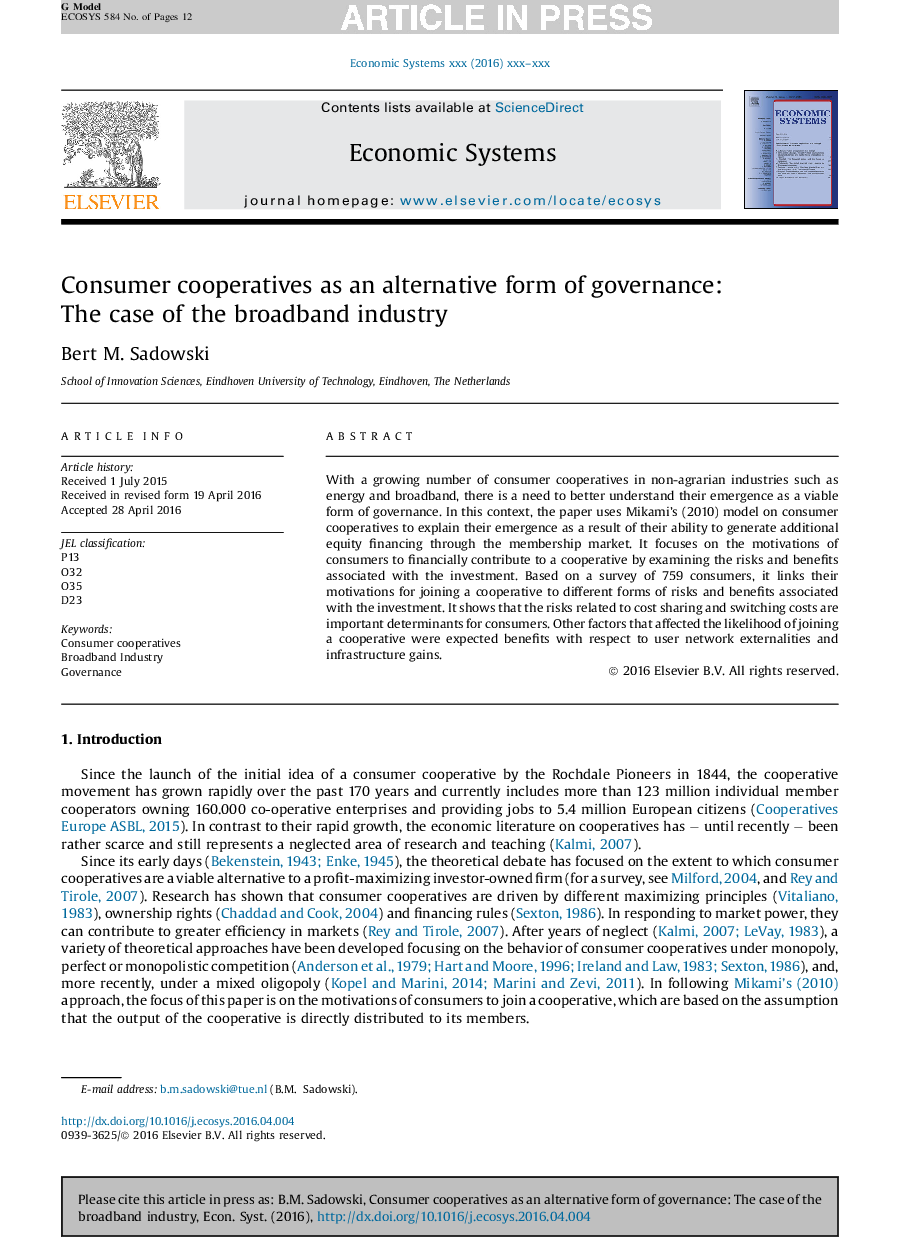| Article ID | Journal | Published Year | Pages | File Type |
|---|---|---|---|---|
| 5056224 | Economic Systems | 2017 | 12 Pages |
Abstract
With a growing number of consumer cooperatives in non-agrarian industries such as energy and broadband, there is a need to better understand their emergence as a viable form of governance. In this context, the paper uses Mikami's (2010) model on consumer cooperatives to explain their emergence as a result of their ability to generate additional equity financing through the membership market. It focuses on the motivations of consumers to financially contribute to a cooperative by examining the risks and benefits associated with the investment. Based on a survey of 759 consumers, it links their motivations for joining a cooperative to different forms of risks and benefits associated with the investment. It shows that the risks related to cost sharing and switching costs are important determinants for consumers. Other factors that affected the likelihood of joining a cooperative were expected benefits with respect to user network externalities and infrastructure gains.
Keywords
Related Topics
Social Sciences and Humanities
Economics, Econometrics and Finance
Economics and Econometrics
Authors
Bert M. Sadowski,
